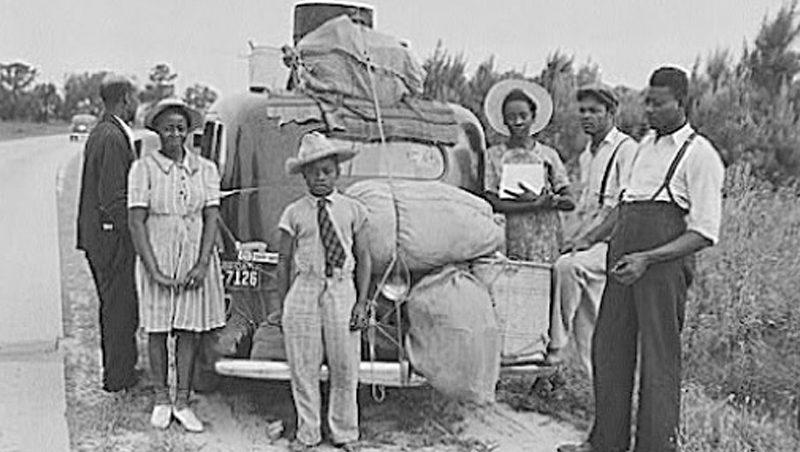Road to War
As the nation prepared for possible war, millions of African Americans abandoned the rural farmlands of the South for factory jobs and better living conditions. They left the heat and humidity of Alabama, Mississippi, and Louisiana for the colder climates of New York, Illinois, and Maryland. The economy of the southern states could not withstand the sudden disappearance of its main workforce as cotton and tobacco fields no longer had black laborers (Black et al., 2015). White farm and business owners were distraught with the migration. During a newspaper interview, one white woman stated, “Why are they dissatisfied? We cannot afford to let him go; he means too much to us financially. We do not have to be careful of his living conditions; he is good-natured and long-suffering” (Du Bois, 1917, p. 66). As the nation unknowingly marched on the road to war, black families were traveling the road to the metaphoric greener pastures of industrial cities for a better life.
For three years, the U.S. watched the war in Europe develop, carefully monitoring the events across the Atlantic with a strict policy of non-intervention (Storey, 2014). Even though the U.S. segregated its population at the time, African Americans, considered second-class citizens at best, saw an opportunity to prove themselves by volunteering for military service if the nation entered the fray. In 1917, America entered the Great War. The War Department realized that its current standing army of 126,000 men was not enough for a permanent campaign that could end in victory; Congress passed the Selective Service Act, conscription, requiring all males between the ages of twenty-one and thirty-one to register (Palmer, 2014).



